
“Lose It If I Don’t Use It”: Boss Is Shocked At Employee’s Malicious Compliance Concerning PTO
When people sign on to work at a new job, many tend to be so excited about the prospects the position offers that they rarely stop to peruse the contract they’re putting their signature on. Sure, some read through them, but a lot of things might slip their mind because at the moment they seem of little consequence. However, that changes once the person wants to leave the job. That is when the details start to really matter.
In this story, the details are concerning the paid time off (PTO) policies. The company in question had a dubious practice in place that did not benefit the employees at all. However, the author of the story made it work for him with some help from malicious compliance. Scroll down to see how.
Work contracts can be tricky, and that does not happen accidentally. Employers like to catch you off guard when you’re leaving
Image credits: Mikhail Nilov (not the actual photo)
This is exactly what the employer tried to do in the following story. The good thing is that the policies left enough room for malicious compliance
Image credits: Karolina Grabowska (not the actual photo)
Image credits: Karolina Grabowska (not the actual photo)
Image credits: AnIdeaMan
Taking paid time off is beneficial for the company

Image credits: Vlada Karpovich (not the actual photo)
Paid time off policies usually vary depending on where you live. In some countries and states, the employer has to pay it out if it wasn’t used no matter what. In others, it’s all determined by the company policy.
Whatever it is, studies show that employers should encourage their employees to take time off. Taking a break from your job allows you to look at things from a new perspective when you come back. This invites more creativity into the workplace.
Well-rested employees are also usually in a better mood, which makes them easier to work with and more eager to do well. Their mood also rubs off onto their colleagues, making the work atmosphere more pleasant and productive.
Not paying for accrued time off is not a good way to enforce employees taking holidays

Image credits: Yan Krukau (not the actual photo)
Having a policy that makes people lose out on their days off at the end of the year or at the end of their contracts is not really beneficial. It can lead to a lot of stress in the employees and people taking a lot of time off in the last quarter. This can pose a lot of challenges for many businesses as the last quarter is usually quite busy.
There are a few ways to combat it. The most important part is to show the employee that you have enough staff to cover their position when their gone. This will make them feel less guilty about taking a break.
Another important bit is being the example and taking all the personal time off yourself. When the employee sees that taking breaks is encouraged, they will be more likely to follow that lead.
The author reiterated his stance in the comments
Commentators shared their reactions to the story as well as similar incidents that happened to them
This doesn't make sense to me. Obviously companies have different policies, but every one I've worked would have just cancelled the PTO for the days actually worked and not paid both. Also the places I've worked, PTO and holiday pay doesn't count towards overtime so if you had a paid day off in a week, you would have to actually work 40 hours before overtime pay kicked in. Of course the places I worked just paid out unused PTO so we didn't have these issues.
At my company if you work a full week and take a week of PTO on top of it, you in fact get paid for both.
Load More Replies...Why so many people use acronym we don't know about? Can they at least write it full once?
Mainly because most people assume others know what PTO is, usually because we write to our ideal target audience and OPs target is other working adults
Load More Replies...This doesn't make sense to me. Obviously companies have different policies, but every one I've worked would have just cancelled the PTO for the days actually worked and not paid both. Also the places I've worked, PTO and holiday pay doesn't count towards overtime so if you had a paid day off in a week, you would have to actually work 40 hours before overtime pay kicked in. Of course the places I worked just paid out unused PTO so we didn't have these issues.
At my company if you work a full week and take a week of PTO on top of it, you in fact get paid for both.
Load More Replies...Why so many people use acronym we don't know about? Can they at least write it full once?
Mainly because most people assume others know what PTO is, usually because we write to our ideal target audience and OPs target is other working adults
Load More Replies...
 Dark Mode
Dark Mode 

 No fees, cancel anytime
No fees, cancel anytime 









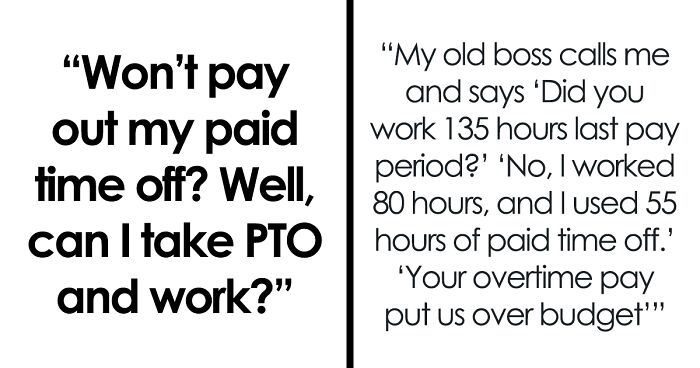



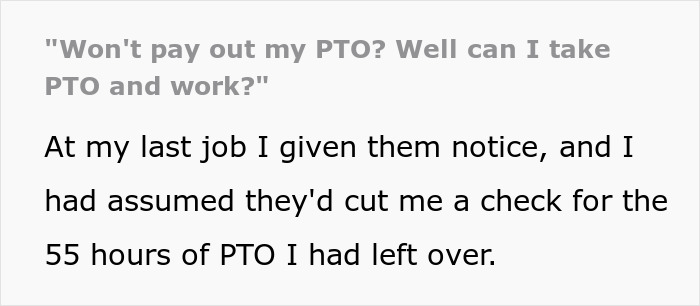
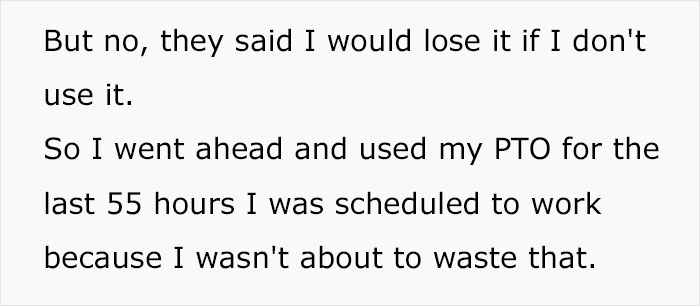
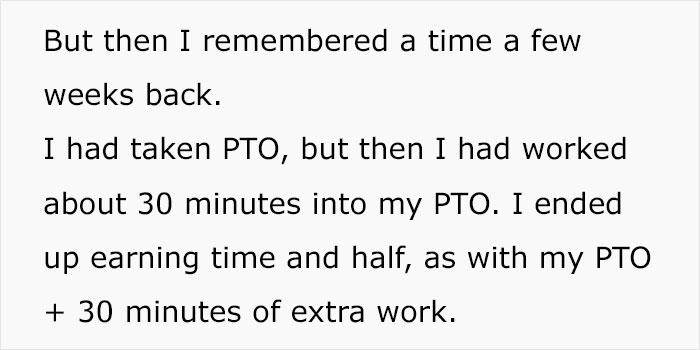
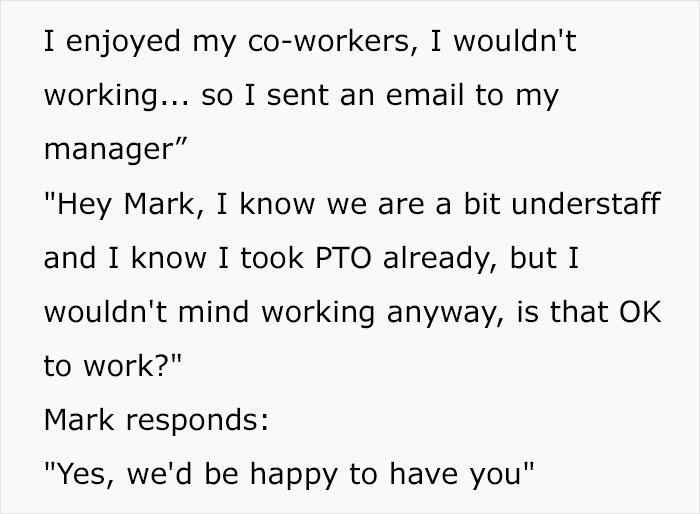

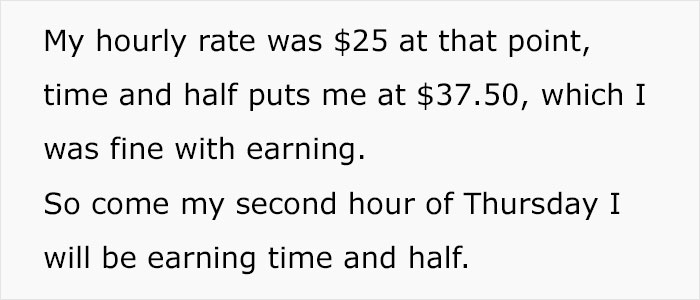
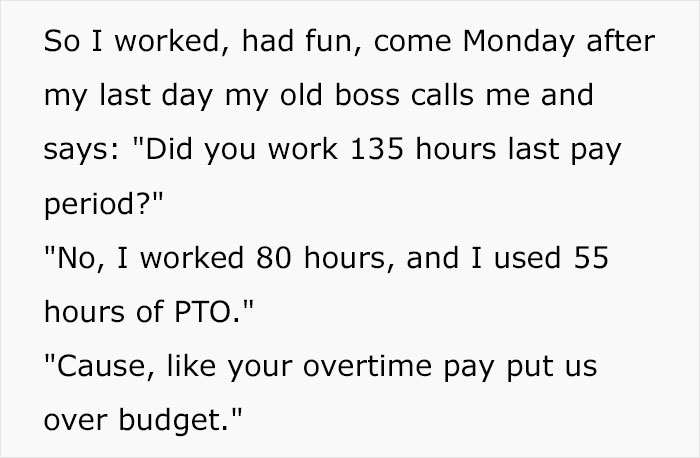
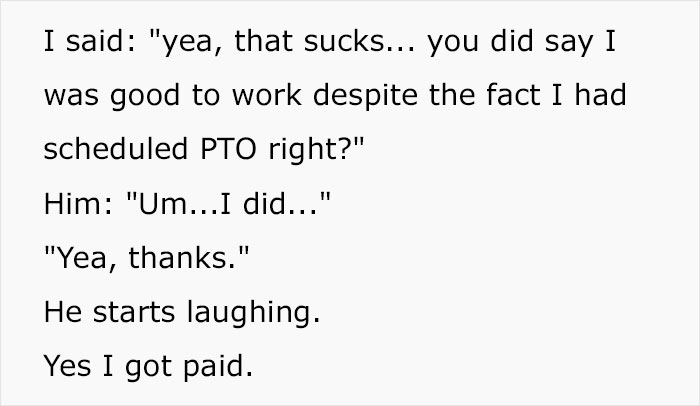

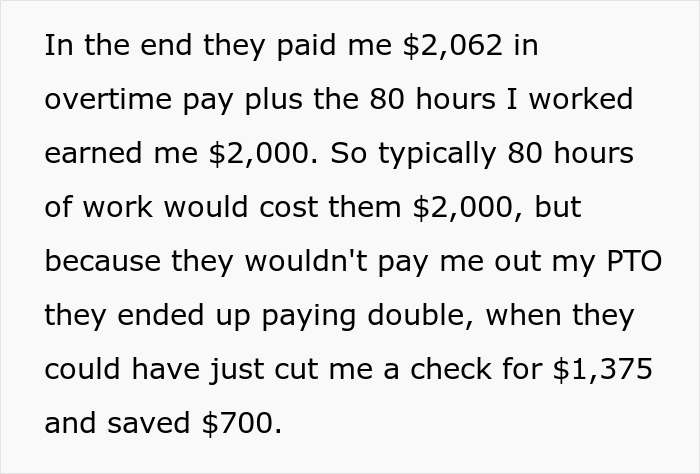
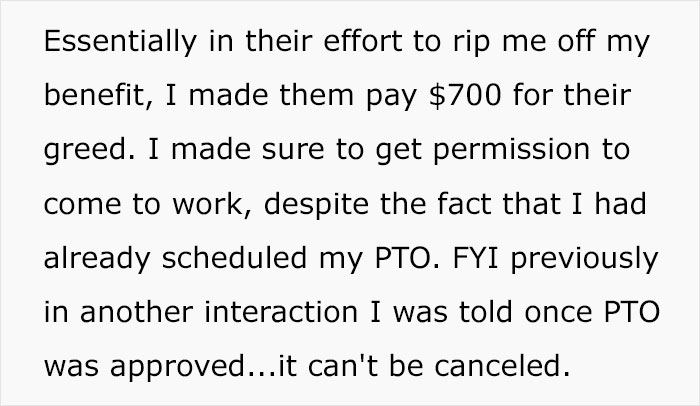

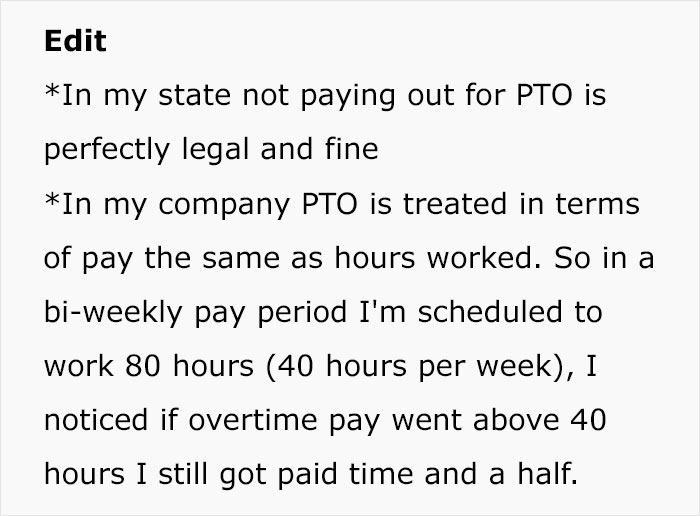
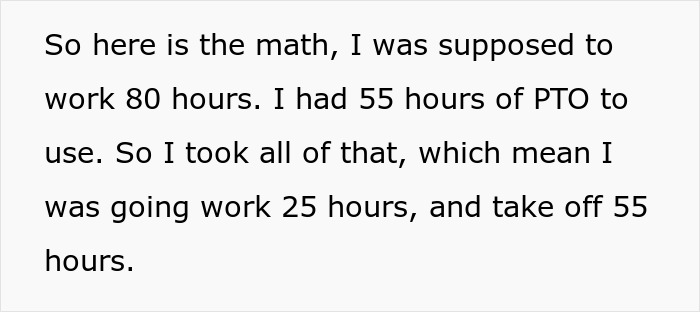


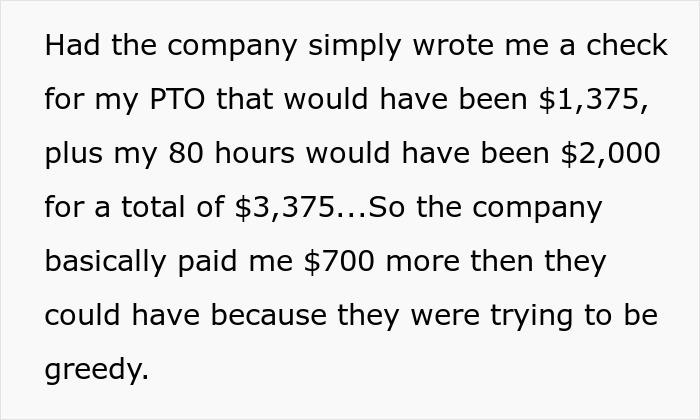
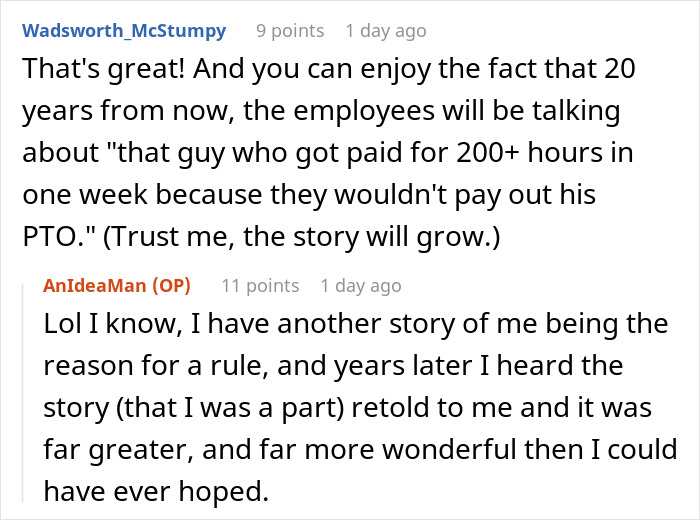


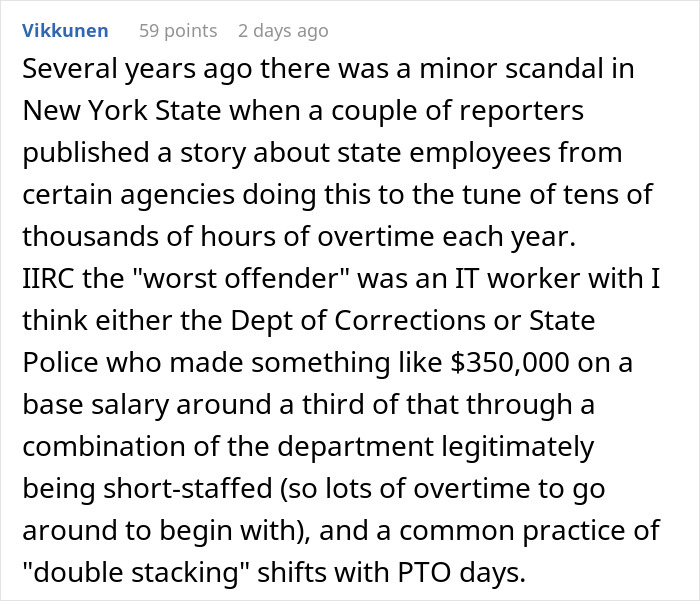

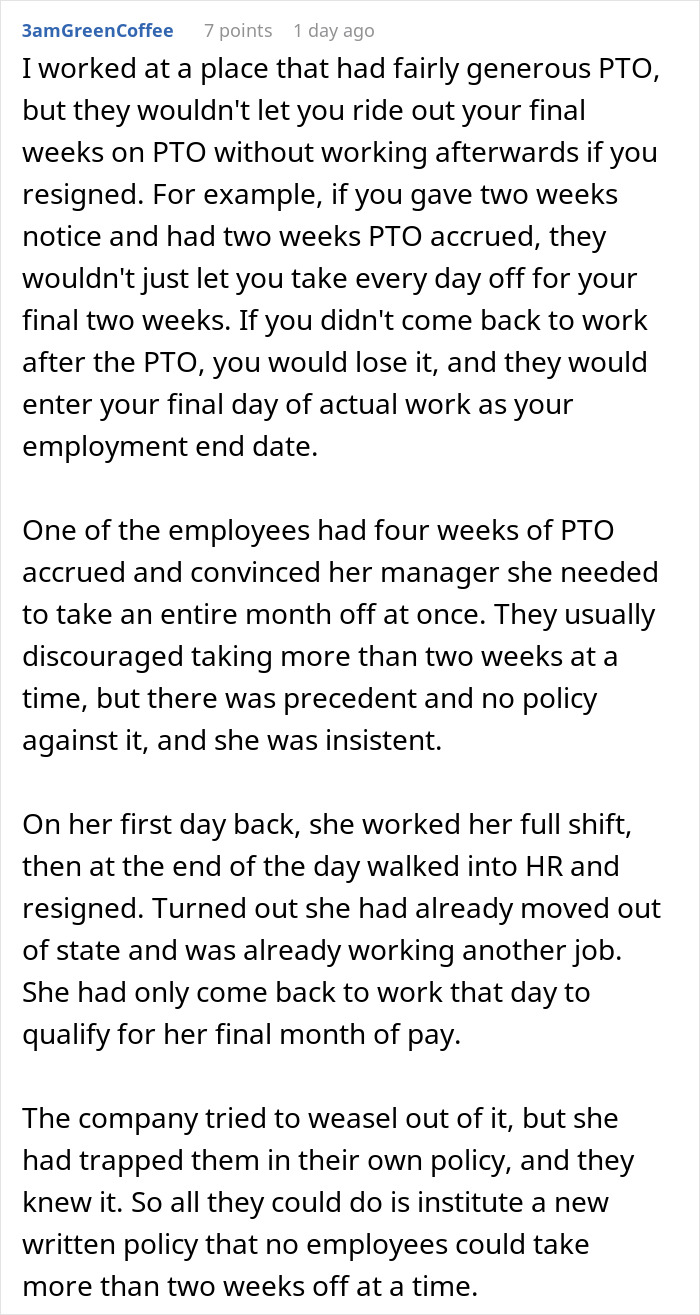


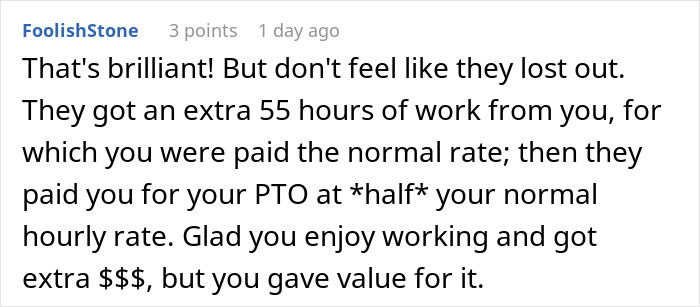
















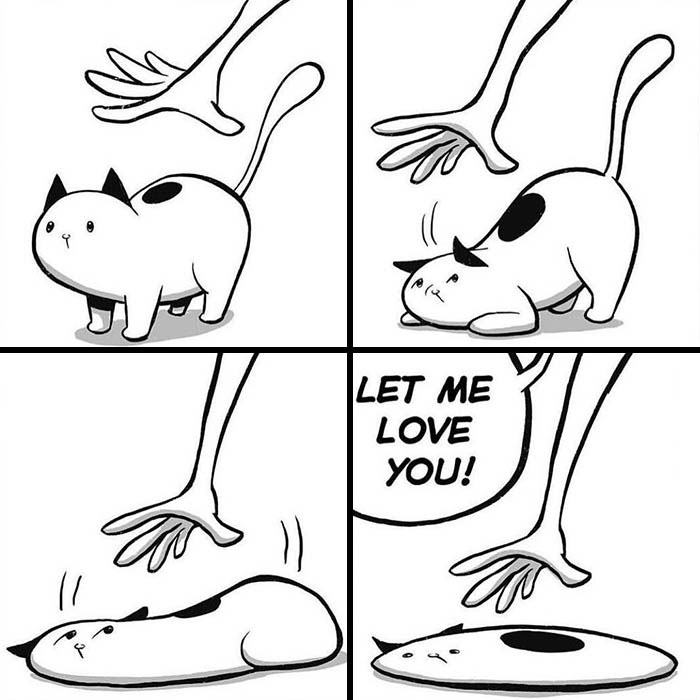

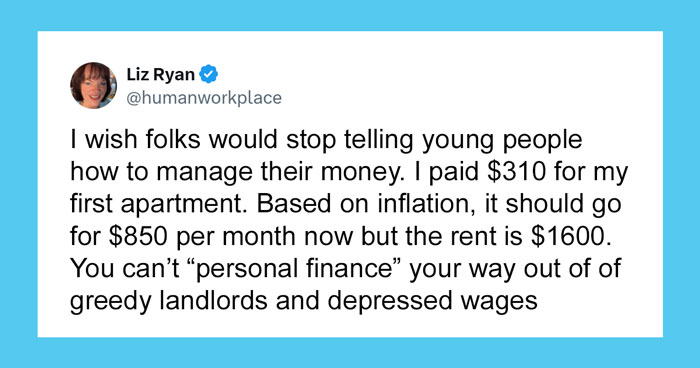





47
7